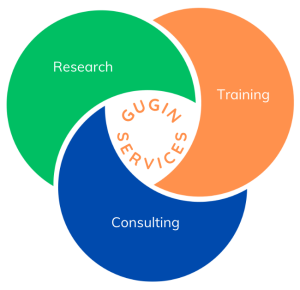Make hospitals and clinics more effective, more innovative and much better workplaces with the right culture
3 days – 2 facilitators – 30 people Maximum
What is the purpose of this workshop?
Healthcare systems around the world are under tremendous pressure because of ageing populations, and a lack of resources and staff that has been pushed to the limits during the Covid-19 pandemic. On top of that, we see budget cuts and difficulty in attracting and recruiting new staff.
This workshop is about how you can create a culture where you can deliver better service, becoming more innovative and collaborative without pushing the staff to the limits.
We will apply best practices and ideas from other sectors and from other countries. We will look at how national policies and structures affect the effectiveness of different healthcare systems.
That is why we want this workshop to have participants from several countries so we can get as much knowledge sharing and network building as possible.
It is worth noting, that this workshop is purely about creating the best workplace culture by applying best practices and experiences from other countries.
The purpose of this workshop is to help the hospital or clinic address the strategic cultural issues it is facing. We will address the issues the hospitals or clinics have identified themselves but also the issues we can see based on megatrends, our experiences and our research. After the workshop, each participant will have a prioritised list of topics and a road map towards actionable solutions in order to meet their strategic goals and objectives
Why you must participate in this workhop?
With the challenges the healthcare systems are facing, getting new inspiration from new sources is crucial. Sharing knowledge with and learn from people who work in the same field as you but in a very different setting is one of the greatest motivators for re-thinking, innovation and change.
If we only speak with people who see the world in the same way we do, it is far too easy to agree on what is possible ad what is not possible.
What will you take away from this workshop?
You will have a catalogue of new perspectives on the challenges you are already facing. As Albert Einstein said: "Stupidity is doing the same thing over and over again and expecting a different result". When you leave this workshop you will have some new initiatives you can try - initiatives others have tried. It can for instance be initiatives on how to attract and retain people in a labour market where resources are scarce and the competition is fierce. Or it can be initiatives on how to improve patient satisfaction. We don't decide the topics for the workshops - you do. We will facilitate the workshop in such a way that we will use the shared knowledge of the group to compile a valuable catalogue of initiatives that will be useful to all of you.
The Workshop Process
In order to maximise the learning from the workshop we have a pre-workshop assessment phase, the workshop and a post-workshop follow-up phase. They are described in more detail below.
1. Pre-workshop-phase
In the pre-workshop phase, we want to learn more about the current issues the participants and their hospitals and clinics are facing. The pre-workshop phase has 3 elements and participants will be involved in two of them.
The topic/needs/pain points and themes are discussed with the participants prior to the workshop. Using a method of co-creation and discovering the inner wisdom of the individual and group (systemic thinking), the workshop follows a format of discussing megatrends, identifying key areas, problem-solving and action planning. We use the wisdom of the group and individual through active participation, experiential learning and problem-solving activities.
- An online survey where we want to gather information about current issues, priorities and actions that can be related to the purpose of this workshop.
- Based on the survey we will draft the final agenda which we will present at a zoom meeting with all participants and receive feedback for modifications and additions.
- Detailed planning of the workshop
Why should you choose Cross-Cultural training from Gugin?
From we started the company in 2001 we knew we would need an engine that could keep us ahead of the competition and constantly deliver world-class consultance and training. The world is constantly changing and we need to change with it and indeally develop services that addresses the agenda of tomorrow. Gugin stands on 3 pilars: Consulting, Training and Research. They fuel each other with great ideas for innovation and service development. When, for instance, we are helping a company with corporate cultural change we might discover cross-cultural issues, we haven't seen before. We then reseach it further and find a great solution to the client and we can upgrade our training portfolio.

So you will NEVER experience us using 50 years old research, like Hofstede's cultural dimensions that promotes cultural stereotypes based on nationalities. In fact our research has shown that these stereotypes don't exist and that if you are promoting stereotypes like "the french are like... and the canadians are like..." you will just create more conflicts.
In everything we do, we focus on how you can synergies from the cultural diversity and our approach is generic. Bringing different nationalities together is no different from bringing different companies, different professions, different age-groups or different sub-cultures inside a company together. All our training gives you generic tool for levelraging the cultural diversity, no matter where it exist.
We develop generic cultural intelligence you can use every where
About Gugin Training Modules
Flexible, Impactful, and Tailored to Your Needs
All our corporate training modules are designed to be intensive, highly interactive learning experiences. You can mix and match modules to suit your specific goals, or integrate them seamlessly into your existing training programmes or corporate university curriculum. We also offer longer, in-depth courses for those seeking a more comprehensive learning journey.
If our standard courses don’t fully meet your needs, we frequently co-create bespoke training and coaching programmes with our clients — ensuring every session delivers maximum relevance and value.
Who Should Attend
These courses are ideal for professionals with first-hand cross-cultural experience — individuals who have found themselves outside their cultural comfort zone and had to navigate uncertainty. This background ensures that participants can immediately relate to the challenges and tools we explore.
Logistics
You are welcome to arrange the venue and manage participant logistics — Gugin will provide the expert facilitator and all course materials. Alternatively, we can take care of everything as a full-service course organiser if preferred. Each training module is designed for up to 12 participants, ensuring a dynamic yet personalised learning environment.
Take the Next Step
Discover how Gugin’s training can elevate your team’s cultural competence and global collaboration. Join the many leading organisations who trust Gugin to turn cultural challenges into strategic advantages — and see the results for yourself.
